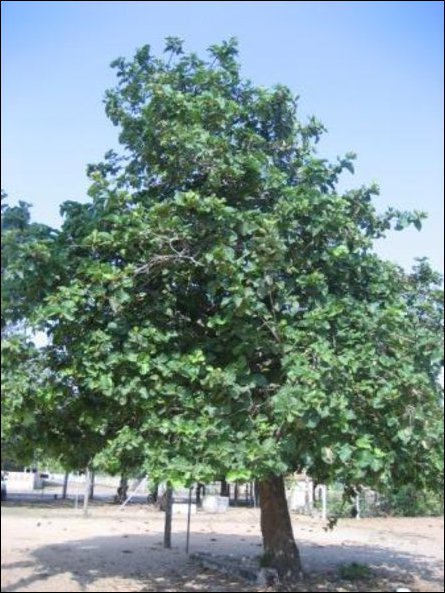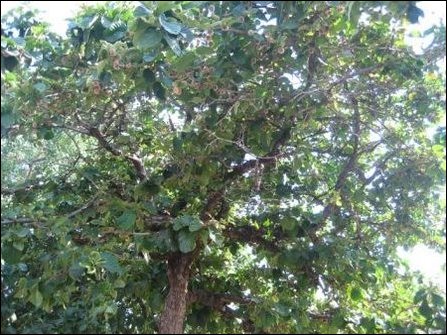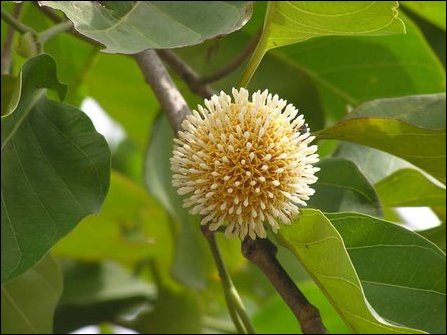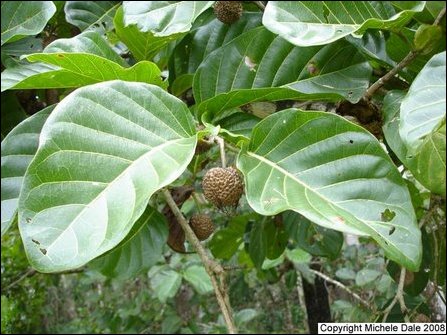Know the Etymology: 93
Place Name of the Day: Wednesday, 19 July 2017
Taṇṇiyūṟṟu/ Taṇṇīrūṟṟu, Vammiyaṭiyūṟṟu, Koṟukkāppuḷiyūṟṟu, Ūṟṟuk-kulam, Ūṟṟuvāyaṉ-kuḷam, Ūttu-piṭiya
தண்ணியூற்று/ தண்ணீரூற்று, வம்மியடியூற்று, கொறுக்காப்புளியூற்று, ஊற்றுக்குளம், ஊற்றுவாயன் குளம், ஊத்து[ப்]பி[ட்]டிய
Taṇṇiyūṟṟu/ Taṇṇīrūṟṟu, Vammiyaṭiyūṟṟu, Koṟukkāppuḷiyūṟṟu, Ūṟṟuk-kulam, Ūṟṟuvāyaṉ-kuḷam, Ūttu-piṭiyaTaṇṇi+ūṟṟu
Vammi+aṭi+ūṟṟu
Koṟukkāy+puḷi+ūṟṟu
Ūṟṟu+kuḷam
Ūṟṟu+vāy+aṉ+kuḷam
Ūttu+piṭiya
The water-spring
The spring of water by the side of a Vammi tree
The spring of water by the side of a Koṟukkāppuḷi tree
The pond of spring-water or the pond getting water from a canal
The pond at the mouth of the sluice canal (of the larger reservoir)
The canal plain or the plain having a spring of water
| Ūṟṟu1 | (noun) spring, fountain, moisture oozing from the ground, flowing, gushing forth; (verb) to pour out, cause to flow (Tamil, DED 761); Ūṟu: (verb) to spring, flow, ooze (Tamil, DED 761); (verb) to spring as water, ooze (Kannada, DED 761); Uṟ: (verb) to spring forth, ooze (Toda, DED 761); Utt: to ooze (Kodagu, DED 761); Ūjuni, Ūsuni: (verb) to ooze (Tulu, DED 761); Uje-pattuni: (verb) to ooze (Tulu, DED 761); Ūṭi, Uja: fountain, spring (Tulu, DED 761); Ūru: (verb) to spring, ooze (Telugu, DED 761); Ūṭa: natural spring, fountain of water (Telugu, DED 761); Ūsā: flow of water (Gondi, DED 761); Ūsa: spring (Konda, DED 761); Urpa: (verb) to ooze, spring up (Kui, DED 761); Ūta: spring, fountain (Kuwi, DED 761); cognates in 15 Dravidian languages (DED 761); Ul, Ulpata: spring of water, fountain; "Diya unana paḷiya" (Sinhala, Sorata); Ul-diya: spring water; "Ulpatin unana jalaya" (Sinhala, Sorata); note the Ṟ/ R/ Ṭ/ T/ J/ S/ L changes. See column 238 on Ul. |
| Ūṟṟu2 | also Ūṟu-kāl, Ūṟṟuk-kāl: a canal feeding a tank or coming from a tank (Tamil, inscriptions, 976 CE, SII, xix, 169; 671 CE, SII, I, 151). See Ūṟṟu 1 for the meanings, flowing, gushing forth, to pour out, cause to flow etc. (Tamil, DED 761) |
| Ūttu | commonly used spoken form of Ūṟṟu (Tamil, note the forms in Kodagu and Kuwi). See box on Ūṟṟu |
| Ūṟṟuvāy | Ūṟṟu+vāy: sluice gate in the context of Ūṟṟuvāyaṉ-kuḻam; see Ūṟṟu 1 and Ūṟṟu 2, for the flowing, gushing forth meanings; Vāy: mouth (Tamil, DED 5352) |
| Aṉ | attributive suffix as in Ūṟṟuvāy+aṉ, meaning, 'of the sluice gate' (Tamil, see columns 66 and 95) |
| Vammi | a large shady tree (Eezham Tamil, Batticaloa usage, as in Kompu-vammiyaṭi, Kanthaiya, V. Cī., 1964, p. 190); seems to be the same tree as Bakmī: Nauclea coadunata or Sarcocephalus cordatus (Sinhala, Clough); "Enam gasa" (Sinhala, Sorata); a tree flowering like Kaṭampu of the Nauclea family; etymology uncertain |
| Koṟukkāppuḷi | from, Koṟukkāyp-puḷi: 1. a tree, the fruit of which is used like tamarind, Malabar gamboge, Garcinia cambogia, "Īḻap-puḷi" (Tamil, MTL); 2. = Koṭukkāyp-puḷi, Koṭukkāy: Manila tamarind, Pithecolobium dulce (Tamil, Malayalam, MTL); Koṟukkā, Koṟukkāy: = Koṟukkāyppuḷi (Tamil, MTL); Puḷi: (noun) acidity, tartness, tamarind tree; (verb) to turn sour (Tamil, DED 4322); Koṟukkāy: Koṟu+kāy; Koṟu, Koṭu: probably related to Kaṭu: (verb) to be pungent; (noun) pungency (Tamil, DED 1135); pungent, bitter (Sanskrit, CDIAL 2641); Kaṟu: sour, bitter (Naikri, DED 1135); Kāy: (verb) to bear fruit; (noun) unripe fruit (Tamil, DED 1459); Goraka: acid fruit used in making curries, the tree of the fruit, Garcinia cambogia (Sinhala, Clough). See column 162 on Goraka in Sinhala. Also see column 54 on Kokkaṭṭi |
| Taṇṇi | colloquial, shortened form of Taṇṇīr: water (Tamil, DED 3045). See columns, 41 |
| Kuḷam | see column 18 |
| Piṭiya | see columns 37 and 163 |
The word Ūṟṟu in Eezham Tamil place names means a spring, a canal feeding a tank or a canal coming from a sluice. Ūṟṟu and Ūṟu, listed as Dravidian, are the related verbs. In spoken Tamil and in place names, Ūṟṟu often becomes Ūttu. See box on Ūṟṟu 1 for a range of phonetic variations in other Dravidian languages. Ul and Ulpata are the forms seen in Sinhala. See column 238 on Ul/ Ulpata in Sinhala place names.
See boxes above on the other components coming in this column.
* * *Ūṟṟu meaning a spring of water:"கல் ஊற்று ஈண்டல கயன்" (நற்றிணை, 186: 1)
"Kal ūṟṟu īṇṭala kayaṉ" (Naṟṟiṇai, 186: 1)
The pool sourced by a spring coming from the rocks or by water oozing from the rocks
Ūṟṟu meaning a canal: "பல்லூர் ஏரிக்குப் பாய்ந்த ஊற்றுக் காலுக்குக் கிழக்கும்" (Tamil inscription, 976 CE, SII, xix, 169)
"Pallūr ērikkup pāynta ūṟṟuk kālukkuk kiḻakkum" (Tamil inscription, 976 CE, SII, xix, 169)
East of the canal flowing into the reservoir of Pallūr
Ūṟal as ooze of water:"பரல் அவல் ஊறல் சிறு நீர்" (நற்றிணை, 333: 3)
"Paral aval ūṟal ciṟu nīr" (Naṟṟiṇai, 333: 3)
The little water oozing from the pebbly depression
Uṟu as verb:"நாறு கொள் பிரசம் ஊறு நாடற்கு" (நற்றிணை, 268: 5)
"Nāṟu koḷ piracam ūṟu nāṭaṟku" (Naṟṟiṇai, 268: 5)
To the person of the village where hive-filling honey oozes (in flowers)
* * *Taṇṇiyūṟṟu is a place in Karaithuraipparru division of Mullaiththeevu district. The place has a natural spring.
Vammiyaṭiyūṟṟu is in Poratheevuppattu division of Batticaloa district.
Koṟukkāppuḷiyūṟṟu is a place north of Puḷukunāva tank in Manmunai Southwest division of Batticaloa district (Kalmunai OIS). The place has a natural spring.
Ūṟṟuk-kuḷam is the name of a small tank and place near Kuccaveḷi in Kuchchaveli division of Trincomalee district (Padawiya OIS)
Ūṟṟu-vāyaṉ-kuḷam or Ūttu-vāyaṉ-kuḷam is in Mannar Town division of Mannar district. This is a tank and place located adjacent to one of the sluices of the Giant's Tank Reservoir. As the prefix of the place name corrupted into Ūttai-vāyaṉ (meaning foul-mouthed), and became a matter of ridicule on the village, the place has been renamed some years ago as Uyirtta Rācaṉ Kuḷam/ Uyirtta Rāyaṉ Kuḷam (meaning the tank of Our Lord of Resurrection).
Ūttu-piṭiya is a place in Thirappane division of Anuradhapura district.
* * *Some related place names:Ūṟṟu as suffix:Caravaṇaiyaṭiyūṟṟu: Caravaṇai+aṭi+ūṟṟu: Poratheevuppattu, Batticaloa. Caravaṇai: a kind of reed
Naṭūṟṟu: Naṭu+ūṟṟu: Kinniya, Trincomalee. Naṭu: middle
Maṅkaiyūṟṟu: Maṅkai+ūṟṟu: Trincomalee Town and Gravets, Trincomalee
Pālaiyūṟṟu: Pālai+ūṟṟu: Trincomalee Town and Gravets. Pālai: a tree, also a freshwater fish
Vāḷayūṟṟu: Vāḷai+ūṟṟu: Kuchchaveli, Trincomalee. Probably, Vāḷai: freshwater eel that is commonly found in ponds, canals and paddy fields
Vayiriyūṟṟu: Vayiri+ūṟṟu: east of Kavāṭṭikkuṭā, Trincomalee OIS. Vayiri: Vayirāvi: a Saiva ascetic
Tekilūṟṟu: Kavāṭṭikkuṭā, Trincomalee OIS. Tekil: probably, thicket or jungle, see Tikaḻi/ Digiliya
Makiḻūṟṟu: Makiḻ+ūṟṟu: near Veḷḷaimaṇal, Trincomalee OIS. Makiḻ: a tree
Karimalaiyūṟṟu: Kari+malai+ūṟṟu: near Veḷḷaimanal, Trincomalee OIS
Kaṇṭalaṭiyūṟṟu: Kaṇṭal+aṭi+ūṟṟu: Kinniya, Trincomalee OIS. Kaṇṭal: mangrove in this context; Ūṟṟu seems to be a canal of the Mahāveli river in this context
* * *Ūṟṟu in non-suffix position:Ūttuk-kēṇi: Ūṟṟuk-kēṇi: Tampalavattai, (Kalmunai OIS). Kēṇi: excavated pond of underground water
Ūṟṟu-mōṭṭai: Kalmaṭu, Kilinochchi (Balasundaram, p. 287). Mōṭṭai: natural pond
Ūṟṟuc-cēṉai: Eravurppattu, Batticaloa. Cēṉai: slash-and-burn cultivation field
Ūṟṟup-pulam: Karaichchi, Kilinochchi. Pulam: cultivation field
Ūttāṅ-karai: Karaithuraipparru, Mullaiththeevu. See Taṇṇīr-ūttaṅ-karai
Taṇṇīr-ūttaṅ-karai: Veḷḷāṅkuḷam, Manthai West, Mannar, (marked as Thaneeroothankarai, Tunukkai OIS). This is a coastal place having large wells. Karai: seashore
Paṭṭiyāṉ-ūṟṟuk-kuḷam: southwest of Pūvarcantīvu, Trincomalee OIS. Paṭṭi: cattle station
* * *Vammi:Vammi-vaṭṭavāṉ: Koralaippattu North, Batticaloa. Vaṭṭavāṉ: see column 475
Kompu-vammiyaṭi: Maṇṭūr, Poratheevuppattu, Batticaloa (Kanthaiya, 1964, p. 190). Kompu: in this place name means the Kompu game played in Batticaloa. See column
* * *Bakmī:Bakmī-deṇiya: Dehiattakandiya, Ampara
Bakmī-gama: Gomarankadawala, Trincomalee
Bakmī-vẹva: Ambampola, Kurunegala; Polpithigama, Kurunegala
Bakmī-gaha-vatta: Maho, Kurunegala
Bakmī-golla: Ibbagamuwa, Kurunegala
Bakmī-ruppa: Bingiriya, Kurunegala
Bakmī-kaḍa: Mẹdawachchiya, Gomarankadawala, Trincomalee (Padawiya OIS)
* * *
A young Vammi (Nauclea orientalis) tree photographed in Batticaloa

A matured Vammi (Nauclea orientalis) tree photographed in Batticaloa

Vammi (Nauclea orientalis) flower. [Photo courtesy: forum.ctu.edu.vn]

Vammi (Nauclea orientalis) foliage. [Photo courtesy: picasaweb.google.com/desirablelocals/]
Previous columns:










